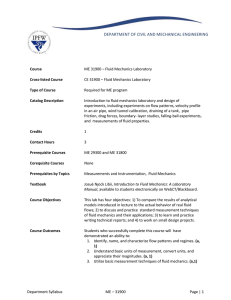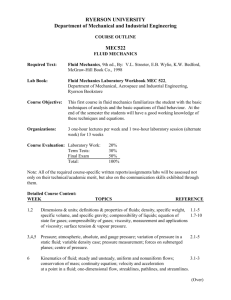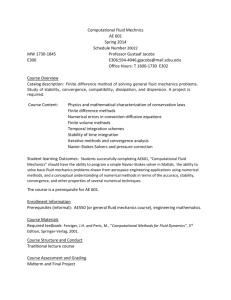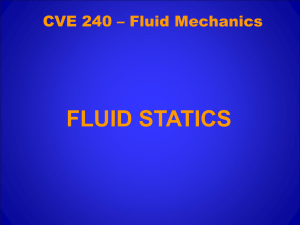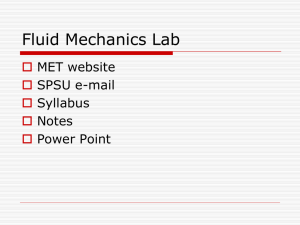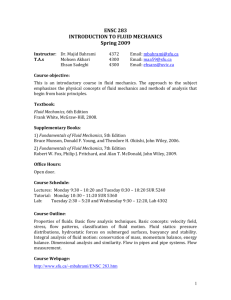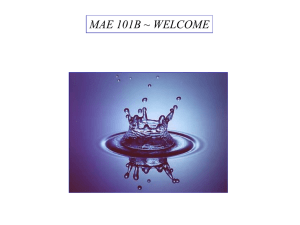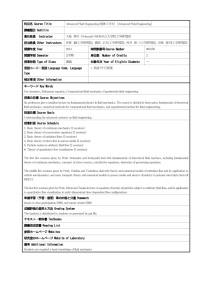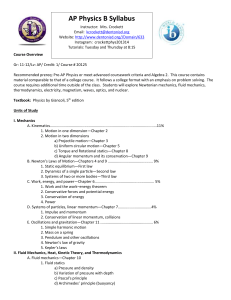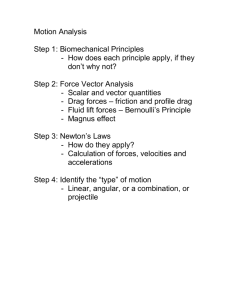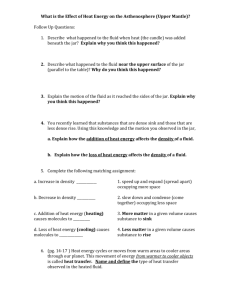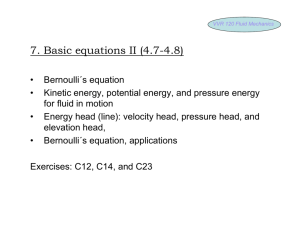Word - IPFW
advertisement
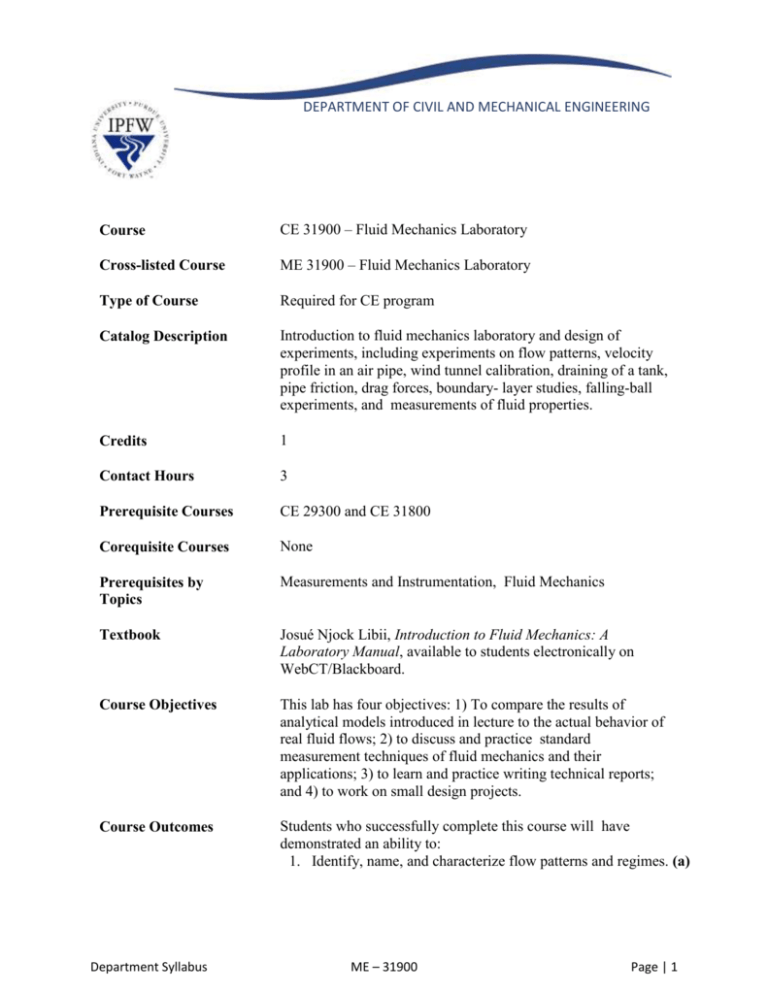
DEPARTMENT OF CIVIL AND MECHANICAL ENGINEERING Course CE 31900 – Fluid Mechanics Laboratory Cross-listed Course ME 31900 – Fluid Mechanics Laboratory Type of Course Required for CE program Catalog Description Introduction to fluid mechanics laboratory and design of experiments, including experiments on flow patterns, velocity profile in an air pipe, wind tunnel calibration, draining of a tank, pipe friction, drag forces, boundary- layer studies, falling-ball experiments, and measurements of fluid properties. Credits 1 Contact Hours 3 Prerequisite Courses CE 29300 and CE 31800 Corequisite Courses None Prerequisites by Topics Measurements and Instrumentation, Fluid Mechanics Textbook Josué Njock Libii, Introduction to Fluid Mechanics: A Laboratory Manual, available to students electronically on WebCT/Blackboard. Course Objectives This lab has four objectives: 1) To compare the results of analytical models introduced in lecture to the actual behavior of real fluid flows; 2) to discuss and practice standard measurement techniques of fluid mechanics and their applications; 3) to learn and practice writing technical reports; and 4) to work on small design projects. Course Outcomes Students who successfully complete this course will have demonstrated an ability to: 1. Identify, name, and characterize flow patterns and regimes. (a) Department Syllabus ME – 31900 Page | 1 2. Understand basic units of measurement, convert units, and appreciate their magnitudes. (a) 3. Utilize basic measurement techniques of fluid mechanics. (a) 4. Discuss the differences among measurement techniques, their relevance and applications. (h, i) 5. Measure fluid pressure and relate it to flow velocity. (k) 6. Demonstrate practical understanding of the various equations of Bernoulli. (k) 7. Demonstrate practical understanding of friction losses in internal flows. (k) 8. Demonstrate practical understanding of boundary layers, separation, drag, and lift. (k) 9. Demonstrate the ability to write clear lab reports. (g) 10. Use word processors, graphics packages, and computational software in writing. (g, i) 11. Prove good understanding of concepts and their applications in the laboratory. (a , g) 12. Compare the results of analytical models introduced in lecture to the actual behavior of real fluid flows and draw correct and sustainable conclusions. (a, k) 13. Demonstrate the ability to work in groups on small design projects that are appropriate to the course. (d, g) 14. Demonstrate the ability to produce a working model through hands-on experience in fluid mechanics design and explain its operation in terms of what was learned in the course. (a, b, c, e, g) 15. Understand ethical issues associated with decision making and professional conduct. (f) Laboratory Topics Department Syllabus 1. 2. 3. 4. 5. 6. Mass density of liquid water Stokes Law and measurement of viscosity The law of hydrostatics: pressure variation in a fluid at rest Hydrostatic forces on submerged surfaces Fluids in rigid-body rotation: forced vortex Bernoulli’s equation in the draining of a cylindrical tank: the free vortex 7. Calibration of a wind tunnel: an application of Bernoulli’s equation 8. Impact of a jet on stationary vanes: linear momentum 9. Flow of air in a convergent-divergent channel: contraction and expansion losses 10. Flow in circular tubes of various diameters 11. Influence of pipe length & diameter on the draining of a tank 12. Demonstration of open-channel flow phenomena CE – 31900 Page | 2 13. Flow past a circular cylinder: pressure and drag coefficients; the viscous wake 14. Estimation of boundary-layer growth on a flat plate in a wind tunnel 15. Drag forces on an oscillating pendulum 16. Drag forces on golf balls: the effect of dimples 17. Design of experiments: exploration of dripping flows Computer Usage High Laboratory Experience High Design Experience High Coordinator Josué Njock Libii, Ph.D. Date 1 October 2015 Department Syllabus ME – 31900 Page | 3
